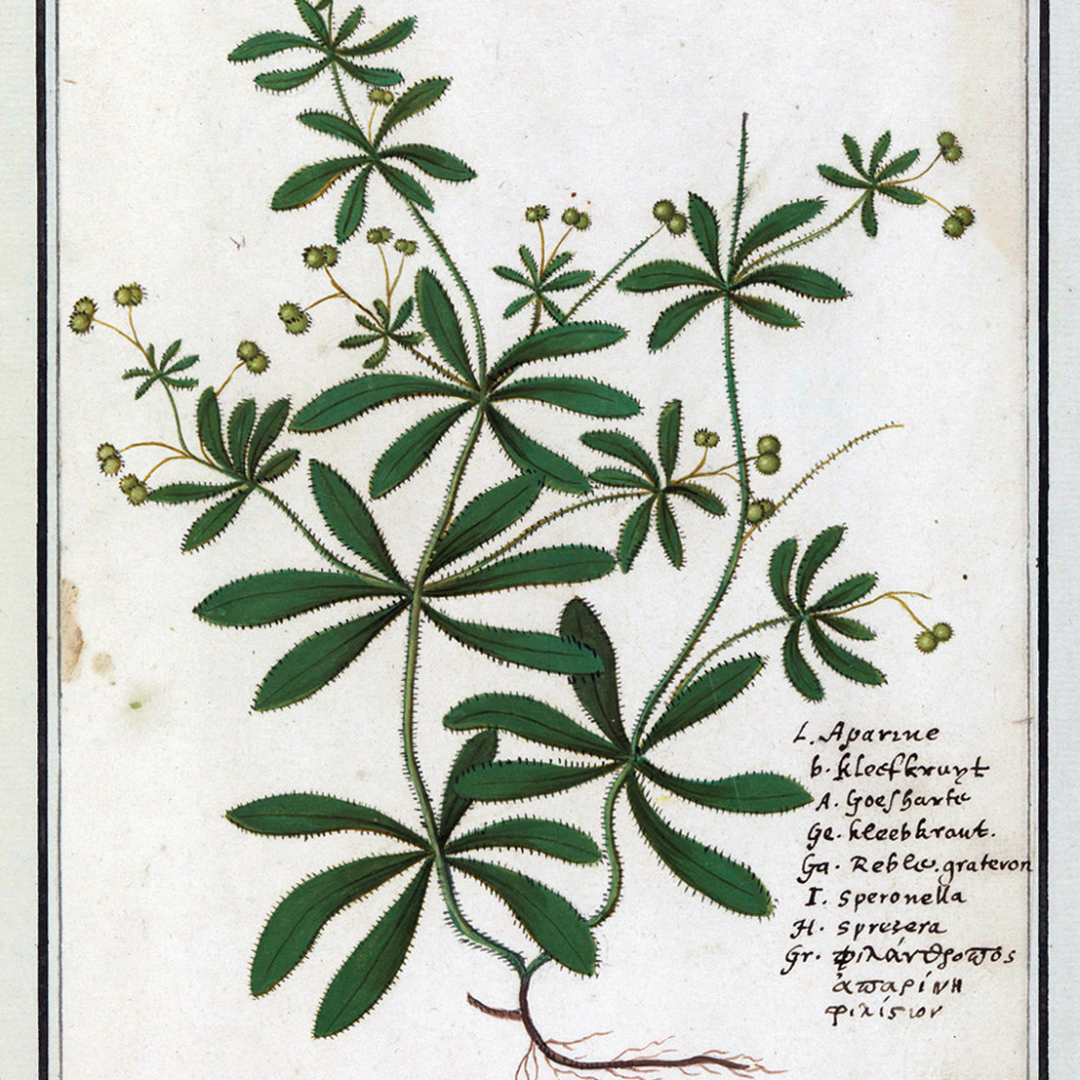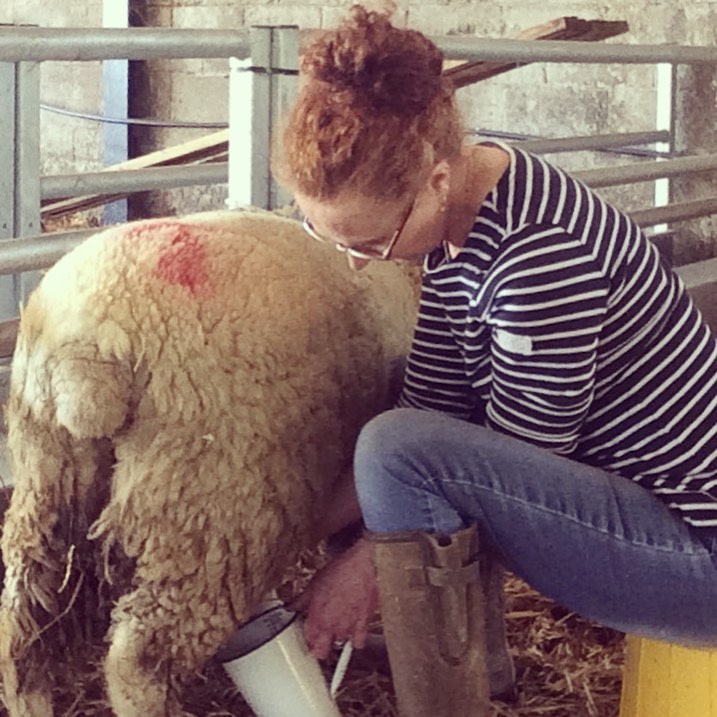Cleavers or Galium Aparine
- Whole Health Agriculture Learning Centre
Latin Name: Galium aparine
Chemical Constituents:
Tannins, Coumarins, Flavonoids (quercetin, kaempferol), Phenolic acids (caffeic acid, chlorogenic acid), Alkaloids, Polysaccharides.

Botanical Description:
Galium aparine, commonly known as Cleavers, is a member of the Rubiaceae family. It is native to Europe, North America, and Asia and is found in moist, shady areas, often growing as a weed in gardens and along hedgerows. Cleavers is an annual herbaceous plant that can grow up to 1.5 meters in length. The stems are slender, square-shaped, and covered with tiny hooked hairs that allow them to cling to surfaces. The leaves are arranged in whorls of 6-8 along the stem and are narrow, lance-shaped, and rough-textured. Small, greenish-white flowers appear in clusters from spring to early summer, followed by small, round fruits covered in hooked bristles.
Traditional Uses:
Cleavers has a long history of use in traditional herbal medicine, particularly in European and Native American cultures.
It is often used as a diuretic to promote the elimination of excess fluids from the body and to support kidney and urinary tract health.
Cleavers is also used as a lymphatic tonic to support the lymphatic system and promote detoxification.
Externally, cleavers poultices or compresses are applied to soothe skin irritations, cuts, burns, and insect bites.
Researched Uses:
Research has shown that cleavers possesses diuretic, anti-inflammatory, and antioxidant properties.
Cleavers extracts have been studied for their potential in promoting urinary tract health and reducing symptoms of urinary tract infections (UTIs).
Cleavers has demonstrated potential as an adjunct therapy for conditions such as edema, cystitis, and kidney stones.
Studies suggest that cleavers may have antimicrobial properties and could help inhibit the growth of certain bacteria and fungi.
Internal Uses:
Cleavers can be consumed internally as a tea, tincture, or extract.
Cleavers tea is typically made by steeping dried or fresh cleavers leaves and stems in hot water for 10-15 minutes.
It is commonly used to support urinary tract health, promote detoxification, and alleviate symptoms of water retention and edema.
External Uses:
Cleavers poultices or compresses can be applied topically to soothe skin irritations, cuts, burns, and insect bites.
Cleavers-infused oils or creams can be used as a topical treatment for conditions such as eczema, psoriasis, and dermatitis.
Cleavers tea can also be added to bathwater for a soothing and detoxifying bath experience.
Uses for Livestock:
If given access, livestock will seek out Cleavers where it grows in field and pasture margins.
Cleavers can be fed to livestock as a natural dietary supplement to support urinary tract health and promote detoxification.
Cleavers tea or decoctions can be added to drinking water for livestock to help alleviate symptoms of urinary issues or water retention.
Uses for People:
For people, cleavers is commonly used as a diuretic and lymphatic tonic to support urinary tract health and promote detoxification.
Cleavers tea is consumed for its diuretic properties and may be used to alleviate symptoms of urinary tract infections or water retention.
Externally, cleavers-infused preparations are used to soothe skin irritations and promote wound healing.
Conclusion:
Galium aparine, or cleavers, is a valuable herb with a wide range of traditional and researched uses. Its diuretic, anti-inflammatory, and antioxidant properties make it a versatile remedy for supporting urinary tract health, promoting detoxification, and soothing skin irritations. Whether consumed internally or used externally, cleavers offers a natural solution for various health and wellness needs for both people and livestock

Kate Scott, aka The Drover's Daughter, has over 25 years experience in farming and is a qualified Medical Herbalist with a special interest in native British plants for ruminant health. Kate comes from a long line of sheep farmers and drovers and is passionate about teaching farmers how to boost health and immunity through the power of herbs and medicinal plants. With her husband she runs a farm consultancy service and also sells bath and beauty products online using botanicals and milk from her own flock.
Follow Kate on Facebook.
Further Information:
Visit the WHAg Learning Hub for a range of webinars on herbs and medicinal plants by Kate and other farm health experts.
To get access to a range of downloads and information on herbs and other natural methods and products become a free member.